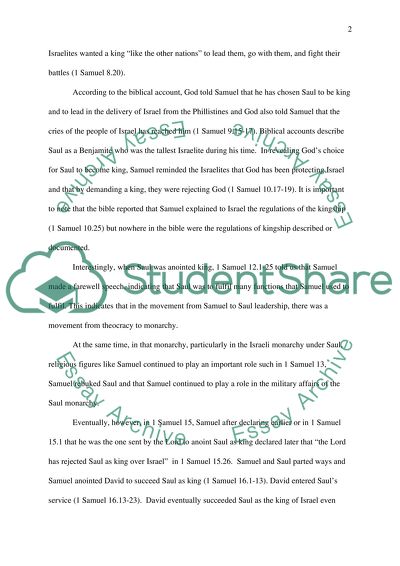Cite this document
(“Reflections on the Life and Period of King Saul Essay”, n.d.)
Retrieved from https://studentshare.org/religion-and-theology/1439963-the-lessons-we-learned-by-king-saul
Retrieved from https://studentshare.org/religion-and-theology/1439963-the-lessons-we-learned-by-king-saul
(Reflections on the Life and Period of King Saul Essay)
https://studentshare.org/religion-and-theology/1439963-the-lessons-we-learned-by-king-saul.
https://studentshare.org/religion-and-theology/1439963-the-lessons-we-learned-by-king-saul.
“Reflections on the Life and Period of King Saul Essay”, n.d. https://studentshare.org/religion-and-theology/1439963-the-lessons-we-learned-by-king-saul.


